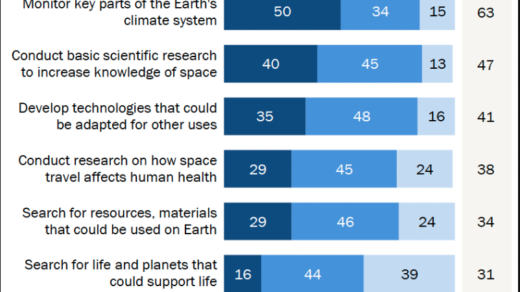This is today’s edition of The Download, our weekday newsletter that provides a daily dose of what’s going on in the world of technology.
I tried OpenAI’s new Atlas browser but I still don’t know what it’s for
—Mat Honan
OpenAI rolled out a new web browser last week called Atlas. It comes with ChatGPT built in, along with an agent, so that you can browse, get answers, and have automated tasks performed on your behalf all at the same time.
I’ve spent the past several days tinkering with Atlas. I’ve used it to do all my normal web browsing, and also tried to take advantage of the ChatGPT functions—plus I threw some weird agentic tasks its way to see how it did with those.
My impression is that Atlas is… fine? But my big takeaway is that it’s pretty pointless for anyone not employed by OpenAI. In fact, Atlas seems to be little more than cynicism masquerading as software. Read the full story.
This review first appeared in The Debrief, Mat Honan’s weekly subscriber-only newsletter.
Seeking climate solutions in turbulent times
Despite recent political shifts in the US, companies are continuing to pursue exciting new climate solutions. Tomorrow we’re holding an exclusive subscriber-only Roundtable event digging into the most promising technologies of the moment drawing from our recently released 10 Climate Tech Companies to Watch list.
This conversation will give subscribers insight into where tangible climate progress is happening today, and how recent political changes are reshaping the path toward a more sustainable future. Join us at 1pm ET on Tuesday October 28—register here!
The must-reads
I’ve combed the internet to find you today’s most fun/important/scary/fascinating stories about technology.
1 Donald Trump says a TikTok deal could be reached this week
Perhaps on Thursday, when he’s due to meet Xi Jinping. (CNBC)
+ US treasury secretary Scott Bessent appeared to jump the gun when he said the deal had already been done. (The Guardian)
2 Covid vaccines helped to prolong the life of cancer patients
The findings raise hopes a universal vaccine could help patients with different cancers. (WP $)
+ Why US federal health agencies are abandoning mRNA vaccines. (MIT Technology Review)
3 How developing nations benefit from “AI decolonization”
Rules forcing Silicon Valley’s giants to process data locally has helped to spread the AI boom’s wealth. (WSJ $)
+ Meanwhile, Saudi Arabia wants to be known as the “AI exporter.” (NYT $)
+ Inside India’s scramble for AI independence. (MIT Technology Review)
4 Those rising electricity costs aren’t just down to AI
Costly electrical equipment and disaster prep are bigger factors pushing up prices. (WP $)
+ Amazon considered concealing its data centers’ water usage. (The Guardian)
+ AI is changing the grid. Could it help more than it harms? (MIT Technology Review)
5 California State wants to become America’s largest “AI-empowered” University
It’s teaming up with Amazon, OpenAI and Nvidia to prepare its students for increasingly AI-driven careers. (NYT $)
+ How do technologies change our abilities to learn skills? (The Atlantic $)
+ Why the ultra-wealthy are sending their kids to High Point University. (WSJ $)
+ The job market is tough right now, but we’ve weathered this kind of storm before. (Insider $)
6 This new startup sells AI bot interactions to manipulate social media
Even though it violates every major platforms’ policies. (404 Media)
7 Even real estate isn’t safe from AI slop
House hunters are being forced to wade through AI-enhanced listings. (Wired $)
8 Why we’re so obsessed with sleepmaxxing
Yes, sleep is good for you. But does the tech that tracks it really do the job it claims to? (The Atlantic $)
+ I tried to hack my insomnia with technology. Here’s what worked. (MIT Technology Review)
9 It’s probably not worth buying an Ultra-HD TV
So feel free to ignore all that persuasive marketing jargon. (The Guardian)
10 Sneaky employees are using AI to fake their expense receipts
So expense firms are in turn deploying AI to try and detect the fakes. (FT $)
Quote of the day
“I’m skeptical of all of the hype around AI right now. This is not my first bubble.”
—Jay Goldberg, a senior analyst at Seaport Global Securities, is no stranger to the hysteria that surrounds overhyped technologies, he tells Bloomberg.
One more thing

Inside Clear’s ambitions to manage your identity beyond the airport
Clear Secure is the most visible biometric identity company in the United States. Best known for its line-jumping service in airports, it’s also popping up at sports arenas and stadiums all over the country. You can also use its identity verification platform to rent tools at Home Depot, put your profile in front of recruiters on LinkedIn, and, as of this month, verify your identity as a rider on Uber.
And soon enough, if Clear has its way, it may also be in your favorite retailer, bank, and even doctor’s office—or anywhere else that you currently have to pull out a wallet (or wait in line).
While the company has been building toward this sweeping vision for years, it now seems its time has finally come. But as biometrics go mainstream, what—and who—bears the cost? Read the full story.
—Eileen Guo
We can still have nice things
A place for comfort, fun and distraction to brighten up your day. (Got any ideas? Drop me a line or skeet ’em at me.)
+ Ancient manuscripts are jam packed with weird and wonderful beasts.
+ Horror writers tell us the spooky stories that send a shiver down their respective spines.
+ Here’s why living on a red dwarf isn’t quite as crazy as it sounds.
+ Kiki the sheep may not be able to walk, but she isn’t letting it get in the way of her getting around

